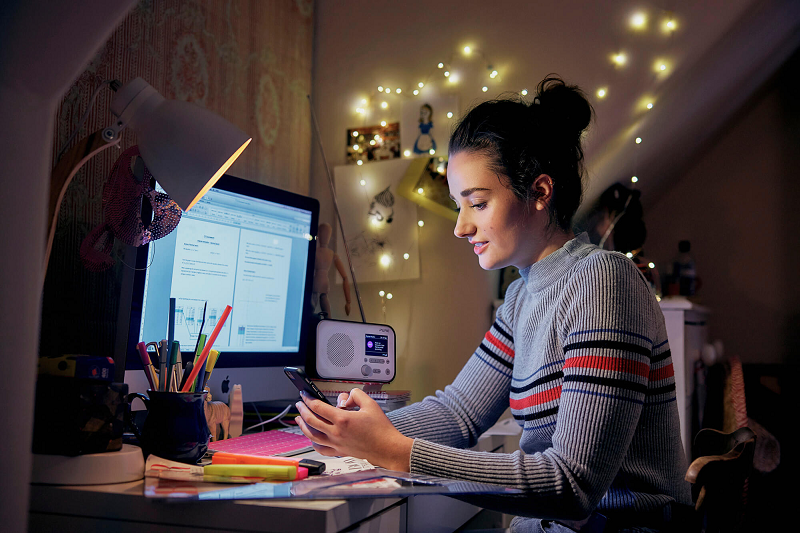Over one third (38%) of commercial radio listeners are tuning in for an extra hour and 45 minutes each day since lockdown amid the COVID-19 pandemic, as they adjust to spending more time at home, according to new research.
The study, from Radiocentre, indicates that 38% of commercial radio listeners are tuning in for an extra hour and 45 minutes each day since lockdown amid the COVID-19 pandemic, as they adjust to spending more time at home.
These listeners are now tuning in for an average of 26 hours every week, compared the average time spent listening of around 14 hours a week prior to the health crisis.
Radiocentre commissioned research agency DRG to explore how the coronavirus crisis has changed listening behaviour in the short-term. Among a sample of more than 1,000 commercial radio listeners, the findings show that the ‘newly working from home’ i.e. those who normally work at an employer’s premises but are now working from home, are the real driving force behind the increase in radio listening, with 45% of this group listening to more radio now – on average for an additional two hours each day. The data suggests that listeners are generally more in need of radio to help them cope with being marooned at home.
The research, Staying Connected During the COVID-19 Crisis, explores the reasons behind the huge jump in listening and how radio is keeping people connected even while isolated. With many stuck inside under lockdown in the UK, 90% percent of respondents agreed that commercial radio kept them in touch with the outside world, while a similar number agreed it kept them informed (89%). A further 84% – possibly missing regular social activities – said that radio keeps them company.
Confidence in radio as a source of news was also a recurring reason for tuning in, with ‘it delivers trusted news’ cited by 68% and ‘I trust the news on radio more than other sources’ by 51%.
The new research follows evidence from commercial broadcasters and radio stations across the UK, collected by Radiocentre, which showed a double-digit increase in digital listening following the beginning of the lockdown. Both Bauer and Global reported a rise in daily reach of 15%, while children’s radio station Fun Kids has also seen a particularly large increase in online audience following the decision to close schools across the country, with streaming hours for the station up 80% overall.
Siobhan Kenny, CEO at Radiocentre, said: “With so many of us confined to our homes, either working or self-isolating, we are seeing shifts in media consumption across the UK. In these strangest of times, we are all finding our own ways to cope, and I am grateful that radio is proving such a consistent source of comfort and trusted news to so many.”
Methodology
DRG spoke to 1,027 listeners of commercial radio for the research. Across the total sample 38% claimed to be listening to more radio, with 48% listening to the same amount, and 15% listening less.

